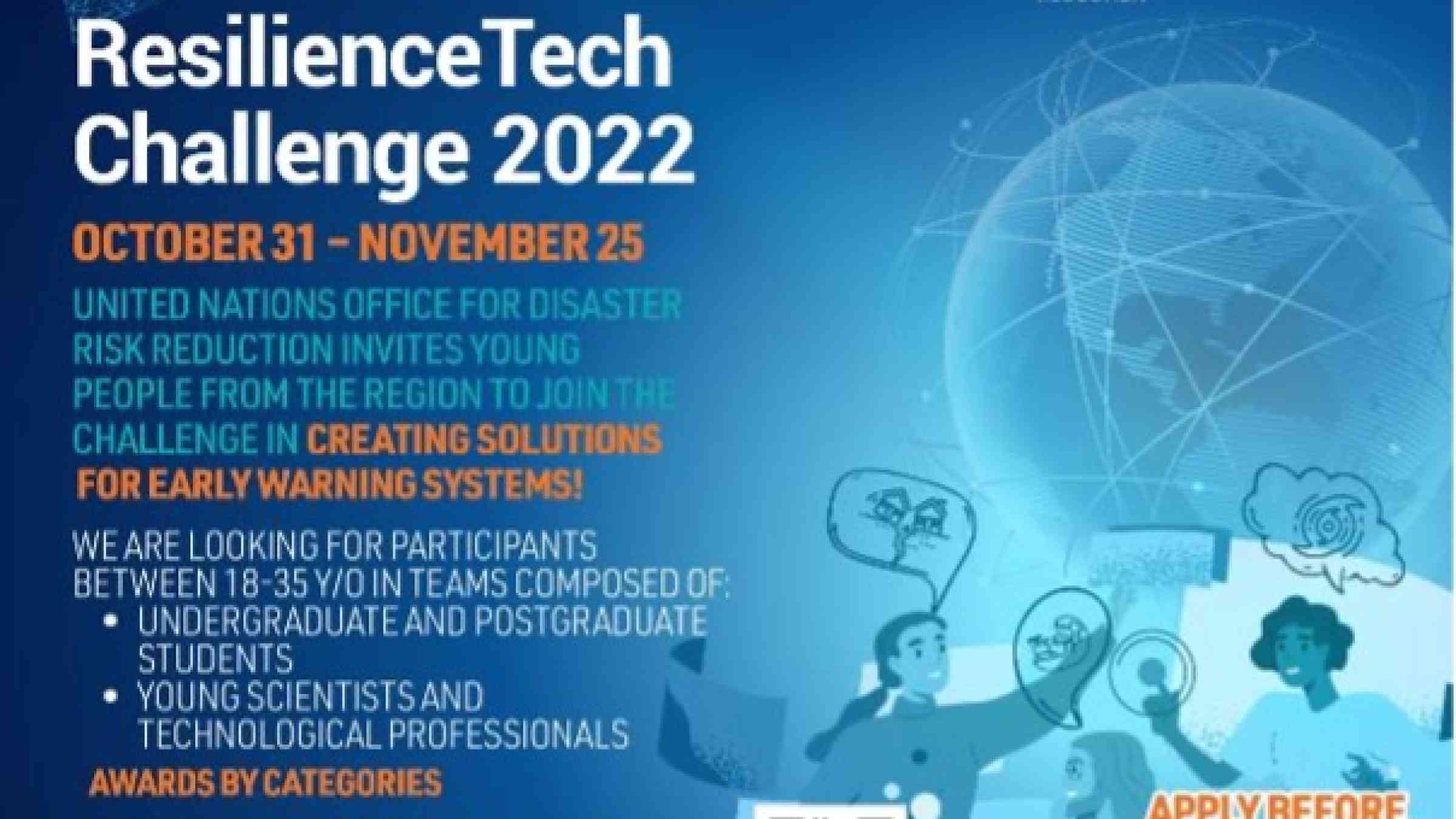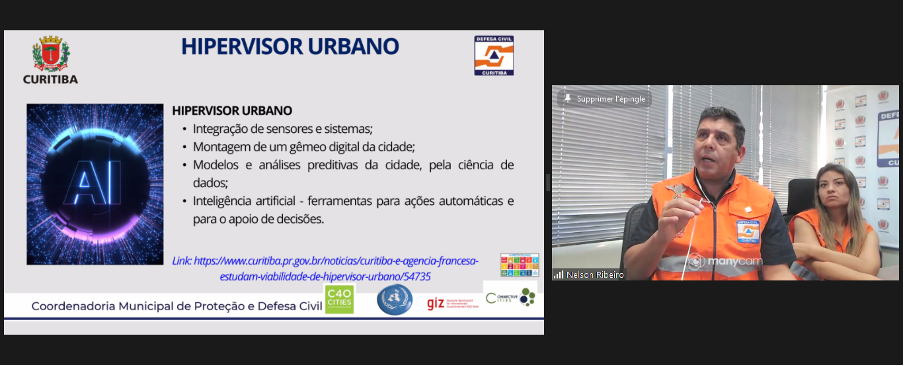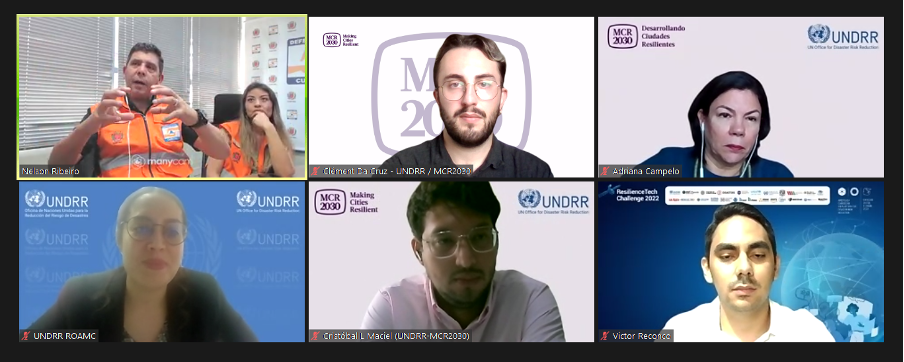Curitiba and MCR2030 exchange knowledge on technological solutions for city resilience at UNDRR’s youth innovation competition

On November 16, representatives of the Municipality of Curitiba (Brazil) and the Making Cities Resilient 2030 (MCR2030) initiative in the Americas and the Caribbean joined the third online dialogue of the ResilienceTech Challenge 2022, organized by the UNDRR Regional Office for the Americas and the Caribbean (ROAMC).
ResilientTech is a competition organized with the objective of providing young (18-35 years old) researchers, scientists, academics, and technical experts in the region with a platform where they are encouraged to innovate and collaborate by integrating them into the scientific and technological space of disaster risk reduction in the region. The goal is to find innovative solutions for early warning systems at the local level and reduce the digital divide in the Americas and the Caribbean through simple and inclusive solutions.
Through this event, the team participants learned about disaster risk reduction and resilience (DRR+R) at the local level as well as cities’ experience with MCR2030 and their gaps and needs in implementing early-warning systems. The event sought to provide the young participants with a better understanding of the utmost importance of local governments implementing the international agenda for DRR+R and the local technological solutions already being implemented.
To do this, MCR2030 Regional Coordinator for the Americas and the Caribbean, Adriana Campelo, presented the initiative and the systemic nature of both risks and cities. She insisted on the current challenges faced by local governments in implementing early-warning systems, as 2 out of 10 inhabitants in Latin America currently live in marginalized at-risk settlements (UNDRR, RAR, 2021) where early warnings often do not reach appropriate response capacity in communities in low-income communities. This figure raises up to 4 out of 10 inhabitants in the Caribbean (UNDRR, RAR, 2021).
She then added that the discussion on the development, access, and use of technology must consider the context of inequality and exclusion that prevails in the Americas and the Caribbean, and that has concrete manifestations in the capacities of use and exploitation of technology. Experience has shown that technological tools have difficulties in assimilation if their developers and managers do not consider the cultural particularities and the visions and knowledge of the communities. In this sense, she highlighted the importance of promoting technologies should be presented as a complement to existing knowledge systems and not as an exogenous package that competes with previous "technological frameworks".

Thereafter, Curitiba’s Civil Defence Coordinator, Nelson Ribeiro, shared the innovative solutions currently implemented in the capital of the Parana State, often at a low cost. One of them is the “Hypervisor Urbano” project, an online platform for the convergence and sharing of public and private data, including risk monitoring and early-warning data. Thanks to this tool, Curitiba can model the entire city to perform predictive analyses of disaster impact, while artificial intelligence triggers automatic response accordingly.
Nelson Riberio also addressed the importance of legislation to ensure the continuity of learning and knowledge from one administration to another, in a region where public action can suffer great political instability. He also stressed the need for community inclusion in early warning systems. For him, a warning can only be effective if the population receives it, understands it, and reacts accordingly. Finally, he pointed out that there is a need to design simple solutions to improve communication between civil protection agents and communities during disasters.
The event was moderated by Mayleen Cabral, UNDRR ROAMC Partnerships Officer, and Victor Reconco, UNDRR Youth representative. It served as a precursor to the VIII Regional Platform for Disaster Risk Reduction (RP23) of the Americas and the Caribbean, which will focus on science and technology, and is an opportunity to foster innovation to solve current problems. The winning team of the ResilienceTech Challenge 2022 will have the opportunity to present their project during the Ignite session of RP23 in person.


